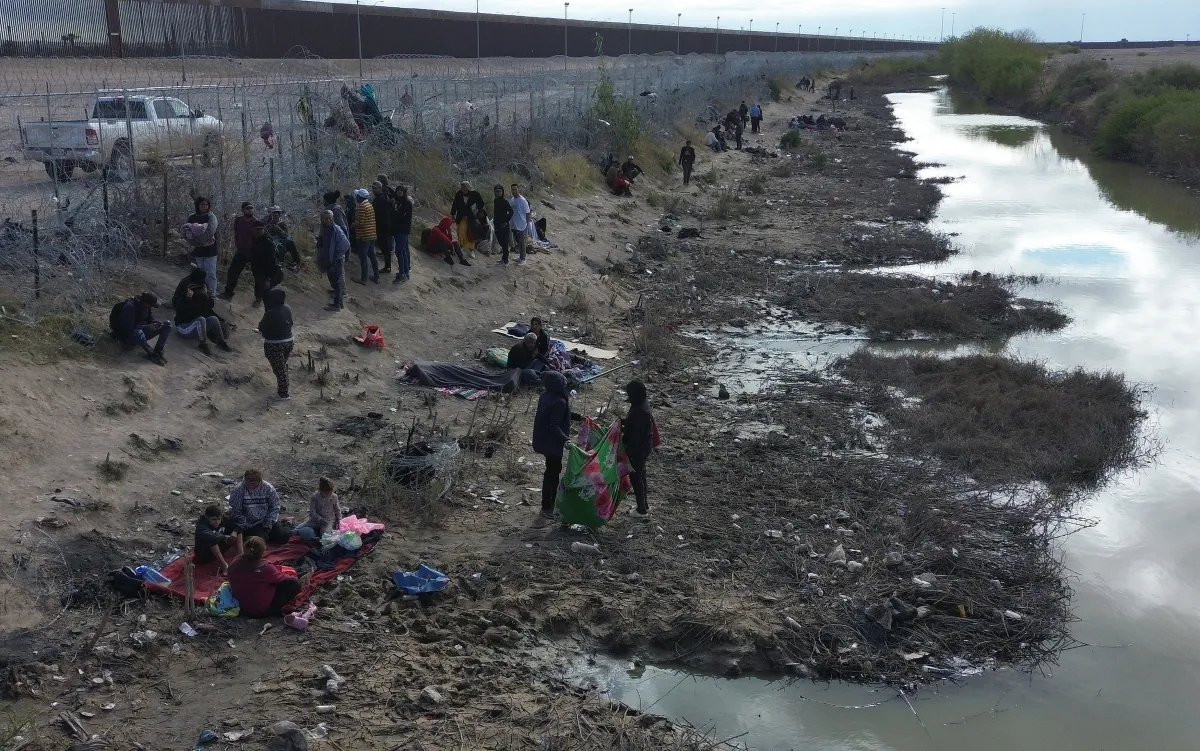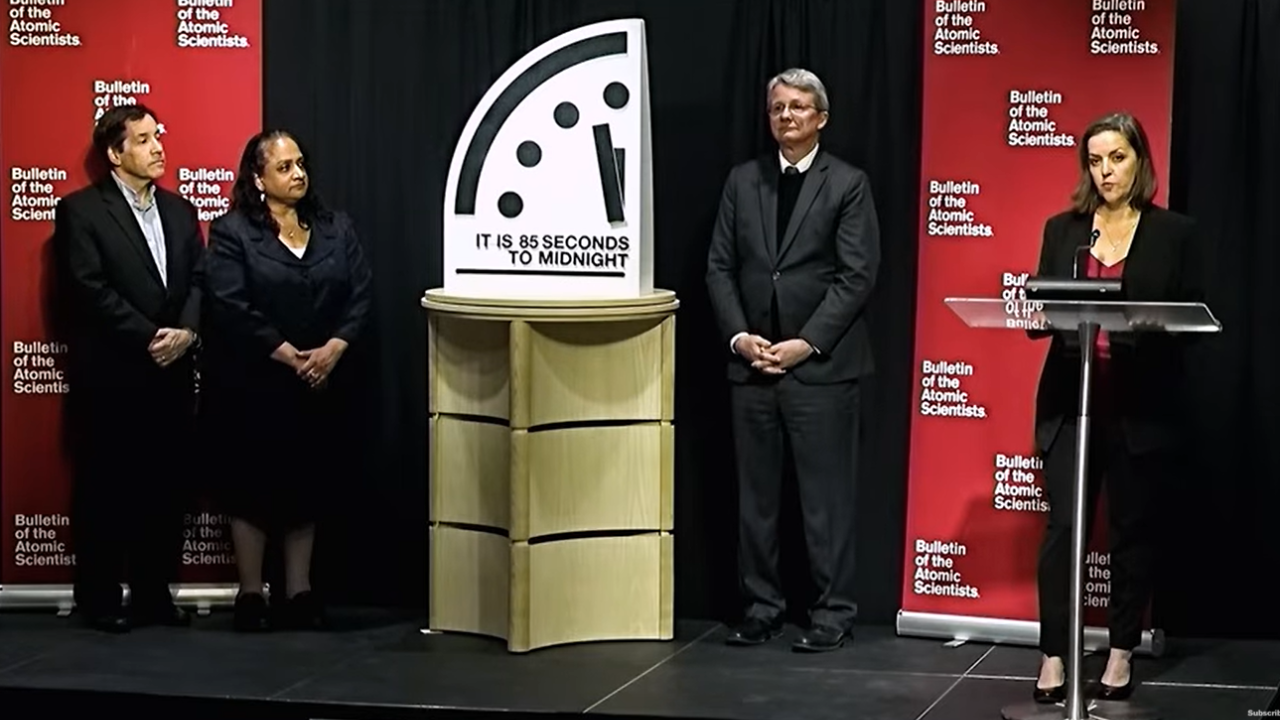International
Keys to the anti-immigrant law of Texas and states that follow its example

The Texas SB-4 law, considered one of the most drastic anti-immigrant measures in the history of the United States along with the SB-1070 of Arizona of 2010, has raised the tension in the border area of the United States and Mexico and has inspired other states of Republican governments to follow in its footsteps.
In the midst of the complicated legal battle between the state and federal governments, which prevented this measure from entering into force on March 5, uncertainty grows among undocumented immigrants, and also legal immigrants, because it lends itself to racial discrimination.
The measure, promoted by the governor of Texas, Republican Greg Abbott, makes it a misdemeanor that a foreigner “enters or attempts to enter the state from a foreign nation” irregularly. The detained migrant will be accused of a misdemeanor, which carries a penalty of up to six months in prison.
If the offender is a repeat offender, the offense becomes a serious crime, punishable by up to 20 years in prison.
The law allows the state Justice (different from immigration judges) to order the expulsion of the foreigner without legal process. A judge could withdraw the charges if the migrant agrees to return to Mexico.
SB-4 also prohibits any local policy that restricts police officers from questioning a person’s immigration status, even during routine arrests such as at traffic stops, which are promoted in the so-called “immigrant sanctuaries.”
The measure requires local authorities to allocate resources such as prison space, agents and funds to implement the law.
The initiative prohibits the police from arresting immigrants in public or private schools, churches and other places of worship, and medical centers. However, it does not mention university campuses.
-Iowa: The House of Representatives of that state approved a bill on Tuesday. It would allow the police to arrest certain undocumented immigrants and order them to leave the country.
Undocumented immigrants could face up to two years in prison if they enter, attempt to enter or are found in Iowa, after they were denied entry to the United States or had been deported.
The measure is addressed to the desk of Governor Kim Reynolds, who has given her support to the legislation.
– New Hampshire: The Senate of that state approved at the beginning of the month a bill that allows the police to file charges of invasion of private property against people suspected of having illegally entered the United States from Canada. The initiative is currently being discussed in the House of Representatives of that state.
– Tennessee: Last Friday, lawmakers from the Lower House of Tennessee approved a bill that requires police officers to report to the Department of Homeland Security (DHS) that they have come across an undocumented person.
– Georgia, Florida, Louisiana and North Carolina: The legislatures of these states have approved or are discussing bills similar to Texan law. They impose harsh sanctions on the undocumented under the argument that they must act to contain the arrival of migrants.
– Arizona: The governor of that state, Democrat Katie Hobbs, has a measure on her table, dubbed the Arizona Invasion Law. It would criminalize immigrants by authorizing police departments to arrest and arrest foreigners who cross the border illegally.
This project, promoted by the Republicans and expected to veto Hobbs, would also grant immunity to the police and their departments from any legal action against them due to possible incidents that occurred while the law is being applied.
International
Spain approves plan to regularize up to 500,000 migrants in Historic Shift

In November 2024, Spanish Prime Minister Pedro Sánchez announced a reform of the country’s immigration regulations aimed at regularizing 300,000 migrants per year over a three-year period, in an effort to counter population aging in a country where births have fallen by 25.6% since 2014, according to official data.
Going against the trend in much of Europe, Spain’s left-wing government has now approved an exceptional migrant regularization plan that could benefit up to 500,000 people, most of them from Latin America.
The measure will allow the regularization of around “half a million people” who have been living in Spain for at least five months, arrived before December 31, 2025, and have no criminal record, Migration Minister Elma Saiz explained on public television.
The plan, approved on Tuesday by the Council of Ministers, establishes that applications will be processed between April and June 30, enabling beneficiaries to work in any sector and anywhere in the country, Saiz said.
“Today is a historic day for our country. We are strengthening a migration model based on human rights, integration, and one that is compatible with economic growth and social cohesion,” the minister later stated at a press conference.
The socialist government of Pedro Sánchez stands out within the European Union for its migration policy, contrasting with the tightening of immigration measures across much of the bloc amid pressure from far-right movements.
Central America
Honduras swears in conservative president Asfura after disputed election

Conservative politician Nasry Asfura assumed the presidency of Honduras on Tuesday with an agenda closely aligned with the United States, a shift that could strain the country’s relationship with China as he seeks to confront the economic and security challenges facing the poorest and most violent nation in Central America.
Asfura’s rise to power, backed by U.S. President Donald Trump, marks the end of four years of left-wing rule and secures Trump another regional ally amid the advance of conservative governments in Chile, Bolivia, Peru, and Argentina.
The 67-year-old former mayor and construction businessman was sworn in during an austere ceremony at the National Congress, following a tightly contested election marred by opposition allegations of fraud and Trump’s threat to cut U.S. aid if his preferred candidate did not prevail.
Grateful for Washington’s support, Asfura—who is of Palestinian descent—traveled to the United States to meet with Secretary of State Marco Rubio, before visiting Israeli Prime Minister Benjamin Netanyahu.
“We need to strengthen relations with our most important trading partner,” Asfura said after being declared the winner of the November 30 election by a narrow margin, following a tense vote count that lasted just over three weeks.
International
Doomsday clock moves to 85 seconds before midnight amid rising global risks

The Doomsday Clock, a symbolic measure of how close humanity is to global catastrophe, moved closer to midnight than ever before on Tuesday, amid growing concerns over nuclear weapons, climate change, and the spread of disinformation.
The Bulletin of the Atomic Scientists set the clock at 85 seconds to midnight, four seconds closer than last year, marking the most perilous moment since the clock was created.
The announcement comes one year into the second term of U.S. President Donald Trump, a period that scientists say has disrupted the global order through unilateral military actions and withdrawals from several international organizations.
According to the Bulletin, Russia, China, the United States, and other major powers have become increasingly aggressive, hostile, and nationalist, a trend that heightens global risk. The decision to advance the clock followed consultations with a panel that includes eight Nobel Prize laureates.
“Hard-won global agreements are unraveling,” the scientists warned in a statement. “This is accelerating a large-scale, winner-take-all competition for power and undermining international cooperation that is essential to reducing the risks of nuclear war, climate change, misuse of biotechnology, the potential threats of artificial intelligence, and other existential dangers.”
-

 Central America4 days ago
Central America4 days agoGuatemala’s president rules out negotiations with inmates after prison riots
-

 International3 days ago
International3 days agoTrump-Era Defense Plan Prioritizes Border Security and Scales Back Global Commitments
-

 Internacionales4 days ago
Internacionales4 days agoMajor winter storm threatens “catastrophic” ice and snow across much of the U.S.
-

 Central America1 day ago
Central America1 day agoGuatemala seizes over a ton of cocaine hidden in flour at Pacific port
-

 International3 days ago
International3 days agoBogotá and Quito Seek Dialogue After Tariffs and Power Cut Escalate Tensions
-

 International4 days ago
International4 days agoGuatemala considers sending high-risk gang members to military prisons
-

 International2 days ago
International2 days agoDelcy Rodríguez seeks political agreements after Maduro’s ouster
-

 International1 day ago
International1 day agoHistoric snowstorm paralyzes Toronto after 60 centimeters of snow
-

 International2 days ago
International2 days agoFederal immigration agents kill man in Minneapolis, sparking protests and outrage
-

 International4 days ago
International4 days agoRights group says over 5,000 killed in Iran protests, mostly civilians
-

 International1 day ago
International1 day agoSpain’s irregular migrant population rises to 840,000, study finds
-

 International1 day ago
International1 day agoRights group says nearly 6,000 killed in Iran protest crackdown
-

 International1 day ago
International1 day agoVenezuela frees at least 80 political prisoners, NGO says
-

 International1 day ago
International1 day agoEU launches new probe into X over AI-generated fake nude images
-

 International1 day ago
International1 day agoSevere winter storm grips U.S., leaves multiple dead as extreme cold persists
-

 International1 day ago
International1 day agoFrance debates ban on social media for children under 15
-

 Central America6 minutes ago
Central America6 minutes agoHonduras swears in conservative president Asfura after disputed election
-

 Central America14 minutes ago
Central America14 minutes agoBukele leads public trust rankings as UCA survey highlights gains in security
-

 International8 minutes ago
International8 minutes agoDoomsday clock moves to 85 seconds before midnight amid rising global risks
-

 International4 minutes ago
International4 minutes agoSpain approves plan to regularize up to 500,000 migrants in Historic Shift
-

 Sin categoría2 minutes ago
Sin categoría2 minutes agoEl Salvador Launches Fourth Year of Ocean Mission to Protect Marine Ecosystems






























